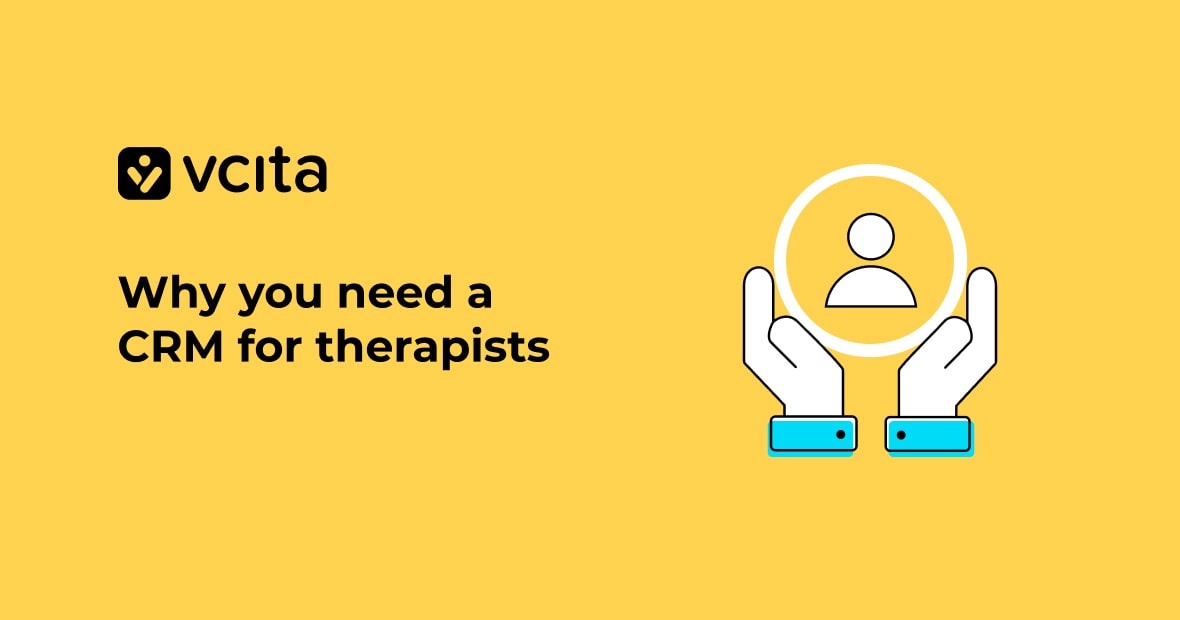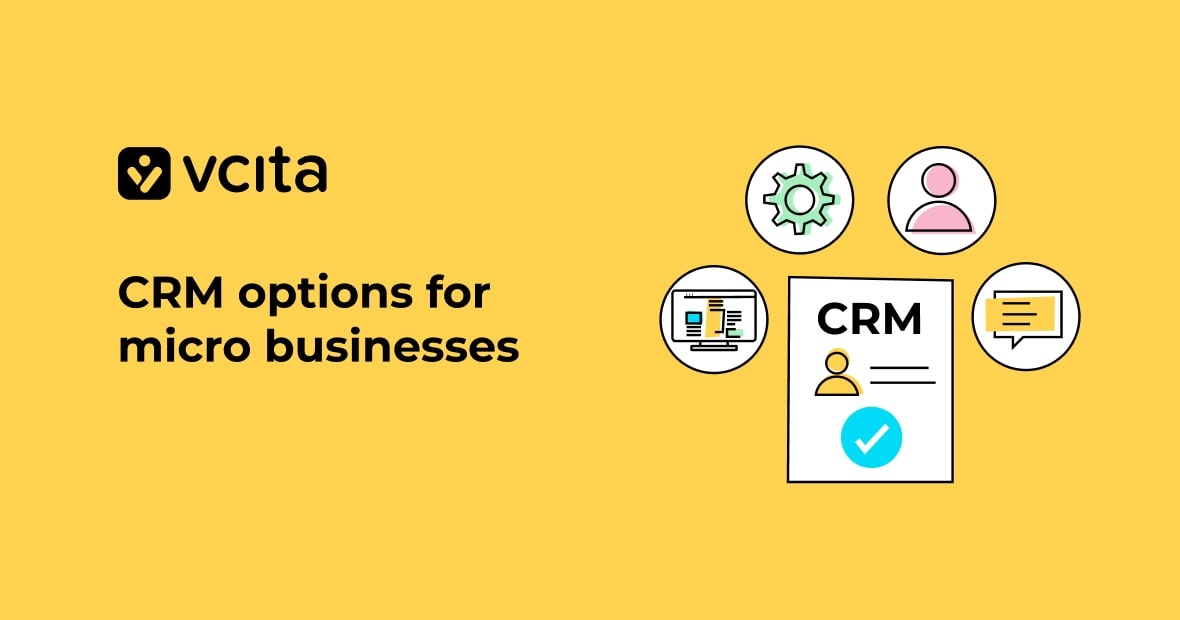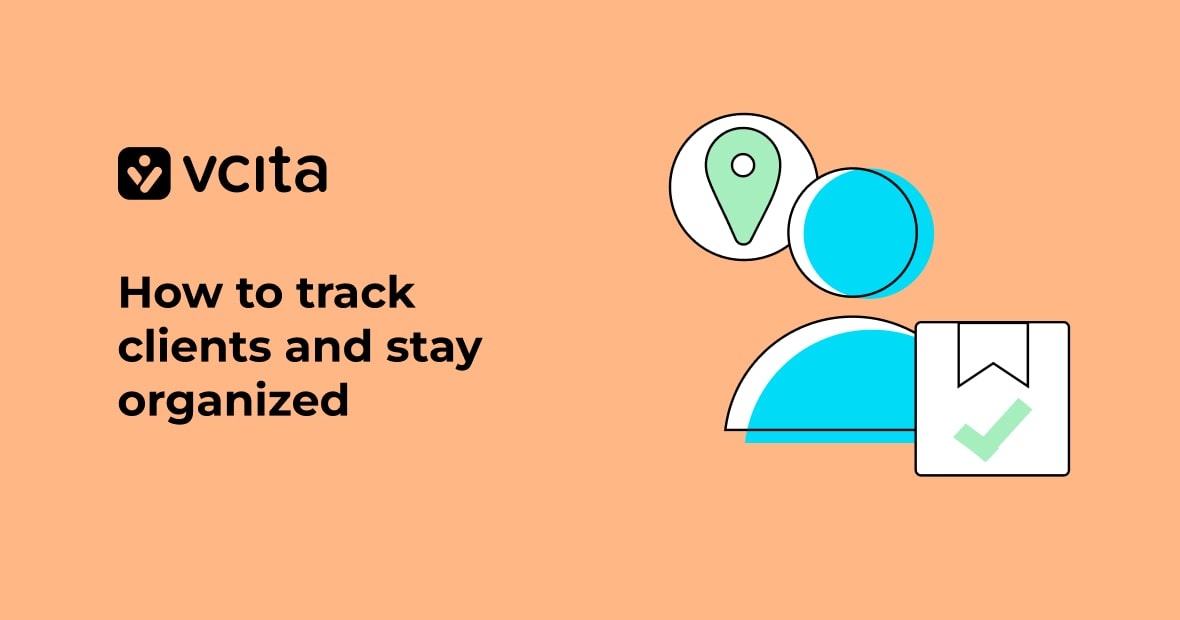You’ve got a therapy practice to run, but managing client information, phone calls, and appointments can be overwhelming. Thankfully, there are tools to help you keep ahead of business management and free you to focus on client care.
A good CRM for therapists handles tedious admin tasks, so you can concentrate on what matters most: mental health and client engagement. The right CRM tools enhance client data management so you can save time, make data-driven decisions, and grow your therapy business.
Read on to learn how vcita’s cloud CRM streamlines client management and maximizes engagement, so you can get back to changing lives.
The role of a CRM for therapists
As a therapist, you know managing client information and scheduling appointments efficiently is key to providing the best care. That’s where a customer relationship management (CRM) tool comes in. Here are the main ways that a CRM helps you organize client data, streamline repetitive tasks, and enhance your client engagement.
Simplify client data management
A good CRM lets you easily store client contact details, notes, and appointment history in one place. No more sifting through emails or paper files to find what you need. With a few clicks, you have a complete view of each client and their care.
Save time with automation
Scheduling appointments, billing, and other repetitive tasks take up valuable time that could be better spent with clients. A CRM automates these processes so you can scale your practice without increasing overhead costs or sacrificing quality of care.
Improve client engagement
A CRM for therapists gives you the tools to strengthen your connection with clients through appointment reminders, email newsletters, client portals, and more. Clients feel more engaged and satisfied, leading to better outcomes and higher retention rates.
Make data-driven decisions
With a CRM, you gain insights into what’s working in your practice through reports and analytics. See how new marketing initiatives impact appointment bookings or which services are most in demand. Make strategic changes based on real data to grow your business.
Key features of an effective CRM platform
Managing client information and scheduling appointments are core parts of your job, but you can delegate them to a robust CRM. Every reliable CRM for service providers should have these core capabilities.
Centralized client data
A CRM for therapists should organize all your client data in one place, giving you instant access to the notes and information you need, as well as a total overview of each client and their care plan.
Appointment scheduling and reminders
Your CRM should streamline appointment management with an online booking widget. It lets you set availability for you and your team, then allows clients to schedule and change their own appointments. It syncs with your calendar apps to send you reminders and show you your commitments at a glance.
Insightful reporting
A good CRM provides reports and dashboards that give you data-driven insights into your practice. It tracks metrics like how many new clients you’ve seen each month, your most popular services, and how much revenue you’re generating.
Integrated marketing and communication
An all-in-one CRM for therapists should include tools to help you connect with clients and build your practice, like email marketing, social media management, marketing campaign strategy, and online reviews and client portals.
Streamline administrative tasks with automation
You have enough on your plate managing client caseloads, staying up-to-date with certifications, and running your practice without hassling with time-consuming admin work. The good news is, technology can help.
Using a customer relationship management (CRM) tool designed for therapists and counselors allows you to automate many of the repetitive tasks that bog you down, like managing client information, scheduling appointments, and tracking phone calls. Here are the most useful automations that a therapist would use in a CRM:
- Appointment scheduling and reminders
- Client intake forms and onboarding
- Follow-ups and check-ins with clients between appointments
- Invoicing, billing, and payments
- Client portal access for clients to check upcoming appointments and read your recommendations
Drive client engagement and grow your practice
Your top priority is providing the best care for your clients. But running a successful mental health practice also requires managing the business side—things like scheduling appointments, billing, and marketing. The right customer relationship management (CRM) tool can help streamline these tasks so you can spend more time focusing on your clients.
Save time and money
A good CRM helps automate repetitive tasks like managing client information, appointment scheduling, and billing. Rather than tracking all of this manually, a CRM stores client data, notes, and appointment details in one place. This means you’ll save hours not having to search through files or re-enter the same client information. You’ll also reduce data entry errors and have more accurate records.
Enhance client engagement
A CRM built for therapists gives you a 360-degree view of each client, so you can provide personalized care. You’ll have client medical history, diagnoses, medications, and progress notes at your fingertips during each session. Clients will appreciate your ability to pick up exactly where you left off. After the session, it’s easy to update records with any changes.
Make data-driven business decisions
A CRM for therapists provides reports and insights to help you make strategic decisions. It collects information on things like appointment frequency, no-show rates, referral sources, and more, giving you insights into what’s working and where there’s room for improvement. You can see trends over time and make data-driven decisions on how to better serve your clients and optimize your business.
Improve the client experience
Your clients will appreciate features like online booking, appointment reminders, and the ability to pay invoices online. They can manage appointments and account details on their own time, day or night. Giving clients this flexibility and ease of access enhances their experience with your practice and strengthens your relationship.
Choosing the right CRM for your therapy practice
Using a customer relationship management (CRM) tool designed for therapists can help streamline business admin tasks, so your business is more organized and you have more time to focus on your clients. Before you commit to a CRM for therapists, make sure it has these features:
- Centralized client data management
- Automated invoicing and billing, including recurring billing and automated payment reminders
- A client portal for smooth communication
- Online appointment scheduling and calendar synchronization
- Appointment reminders via email and SMS
- Mobile app
- Email marketing for newsletters and follow-up emails
- Client intake forms and onboarding processes
- Reports and dashboards for tracking business metrics
A CRM for therapists takes your practice to the next level
A CRM built for therapists, like vcita, provides all the tools you need to manage your practice, enhance the client experience and scale your business. When you choose a CRM focused on the needs of mental health professionals, you gain a powerful system to optimize your time and provide the best support for your clients. A good CRM platform enhances client experience, gives you more time to focus on your clients’ mental health, and provides the tools you need to build a thriving therapy business.




























